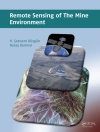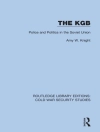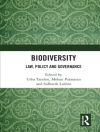In ‘Man and Nature; Or, Physical Geography as Modified by Human Action, ‘ George P. Marsh explores the intricate relationship between humans and the natural environment, articulating a compelling argument that human intervention profoundly shapes physical geography. Written in the mid-19th century, Marsh’s work blends empirical observations with a poetic literary style, reflecting the Romantic ideals of the time while firmly grounding his insights in scientific inquiry. The text serves as a pioneering examination of ecology, urging readers to consider the systemic consequences of human activity on the Earth, while also weaving historical context into a critique of contemporary environmental policies. George P. Marsh, a polymath and diplomat, was deeply influenced by his experiences in both academia and politics, particularly his advocacy for environmental awareness and conservation. His focus on the deleterious effects of deforestation and urbanization arose from a belief in the moral and philosophical duty of mankind to safeguard the natural world. Marsh’s background in linguistics and history enabled him to draw lessons from ancient cultures, providing a multi-faceted view on the sustainability of ecosystems. This seminal work is highly recommended for readers interested in environmental studies, history, and geography. Marsh’s timeless insights resonate with contemporary discussions on climate change and sustainability, making ‘Man and Nature’ an indispensable text for anyone seeking to understand the consequences of human action on our planet.
เกี่ยวกับผู้แต่ง
George Perkins Marsh (1801–1882) was a formidable intellectual force in the 19th century America, distinguished for his contributions to the environmental movement. An erudite polymath, his interests spanned across languages, law, and diplomacy, but it is his seminal work ‘Man and Nature; Or, Physical Geography as Modified by Human Action’, first published in 1864, that anchors his legacy. In this pioneering study, Marsh presents a prescient understanding of the interrelationship between human activities and the natural world. He is often regarded as America’s first environmentalist, anticipating concerns over natural resource depletion and advocating for sustainable practices long before these issues entered the public consciousness. Marsh’s literary style is scholarly and didactic, imbued with a sense of urgency about the need for stewardship of the earth’s resources. His work presaged the conservation movements of the 20th century and remains a cornerstone in the environmental literature. As a testament to his foresight and enduring relevance, ‘Man and Nature’ continues to be referenced in discussions of ecology, sustainability, and environmental policy. Marsh’s multifaceted career included serving as a U.S. congressman and ambassador to Italy, but it is his environmental treatise that stands as his most profound and lasting contribution to scholarship and the world.












